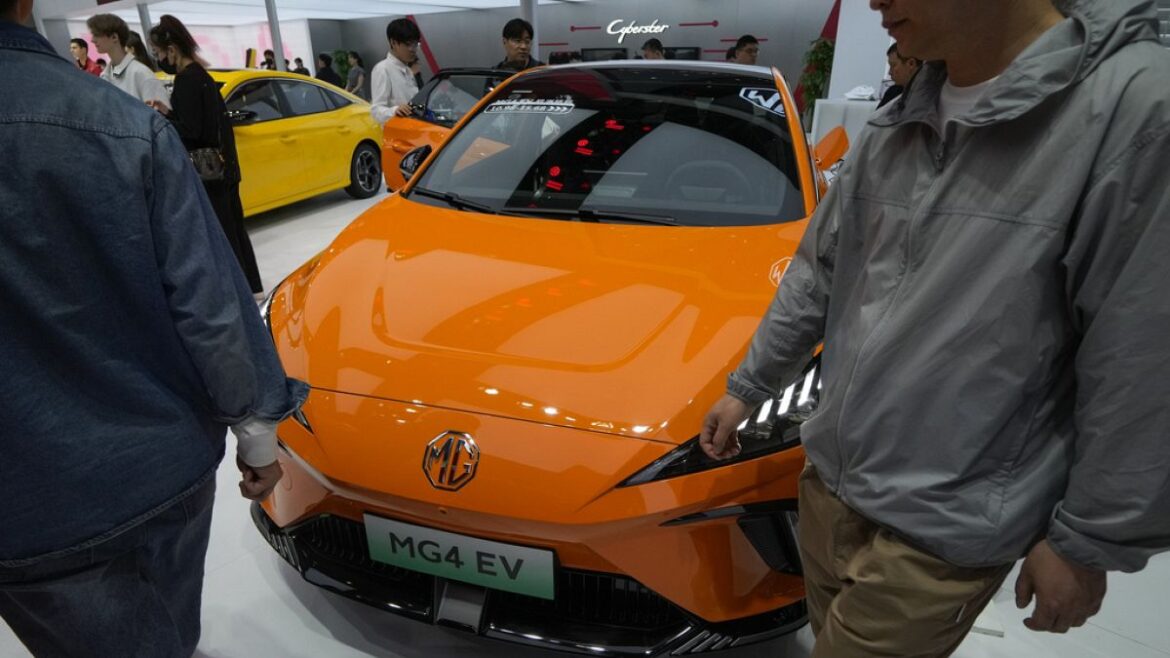The trip by Chinese President Xi Jinping to Europe has rekindled the question of the European Commission’s investigation into possible subsidies benefiting electric car producers in China.
This is the trade issue at the center of the Chinese president’s trip to Europe. Should the EU use its tools to defend its electric automobile industry against Beijing?
Xi Jinping’s stop in Hungary is not insignificant in this matter. Budapest is considered China’s gateway to the Union, and where Beijing is investing heavily in electric vehicle factories.
“There is a big Chinese investment in automotive battery companies in Hungary. Hungary is well placed to become a leading nation in Europe, for example, for the production of electric vehicles“, assures Victor Gao, vice-president China and Globalization.
Chinese electric cars accounted for 3.7% of the European market in 2022, up from 0.4% in 2019. This breakthrough could be the result of an unfair advantage. This is why the European Commission launched an investigation last fall on possible subsidies that would benefit Chinese manufacturers. Vehicles from China would be 20% cheaper than European models. Allianz estimates the potential annual loss in net profits of the EU automotive industry due to Chinese competition to be more than €7 billion by 2030.
But behind this battle lie other issues, explains Bruegel Institute researcher Niclas Poitiers. “If we do not send a strong signal that we are ready to apply free competition and open markets, many other sectors risk being affected by this type of Chinese competition, unfair competition“.
However, the launch of investigations does not mean the automatic implementation of additional customs duties. Since 2008, the Commission has launched 342 investigations into subsidies granted to imports from China, 101 of which did not result in any countervailing duties. The outcome of this research is expected in the coming weeks.



